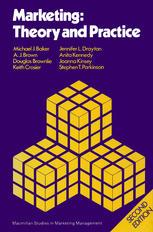Question
The beginning inventory at Funky Party Supplies and data on purchases and sales for a three-month period ending March 31, 2016, are as follows: Date
The beginning inventory at Funky Party Supplies and data on purchases and sales for a three-month period ending March 31, 2016, are as follows: Date Transaction Number of Units Per Unit Total Jan. 1 Inventory 3,000 $56.00 $168,000 10 Purchase 7,100 64.00 454,400 28 Sale 4,200 112.00 470,400 30 Sale 1,300 112.00 145,600 Feb. 5 Sale 500 112.00 56,000 10 Purchase 18,500 66.00 1,221,000 16 Sale 8,900 117.00 1,041,300 28 Sale 8,200 117.00 959,400 Mar. 5 Purchase 14,500 67.60 980,200 14 Sale 10,000 117.00 1,170,000 25 Purchase 3,400 68.00 231,200 30 Sale 8,000 117.00 936,000 Instructions 1. Record the inventory, purchases, and cost of merchandise sold data in a perpetual inventory record similar to the one illustrated in Exhibit 4, using the first-in, first-out method. 2. Determine the total sales and the total cost of merchandise sold for the period. Journalize the entries in the sales and cost of merchandise sold accounts. Assume that all sales were on account and date your journal entry March 31. Refer to the Chart of Accounts for exact wording of account titles. 3. Determine the gross profit from sales for the period. 4. Determine the ending inventory cost as of March 31, 2016. 5. Based upon the preceding data, would you expect the inventory using the last-in, first-out method to be higher or lower?
Step by Step Solution
There are 3 Steps involved in it
Step: 1

Get Instant Access to Expert-Tailored Solutions
See step-by-step solutions with expert insights and AI powered tools for academic success
Step: 2

Step: 3

Ace Your Homework with AI
Get the answers you need in no time with our AI-driven, step-by-step assistance
Get Started


